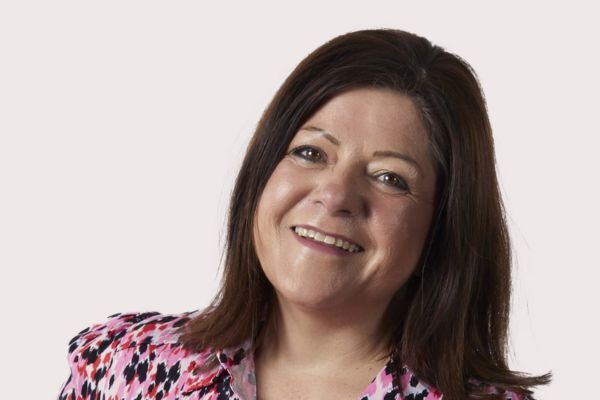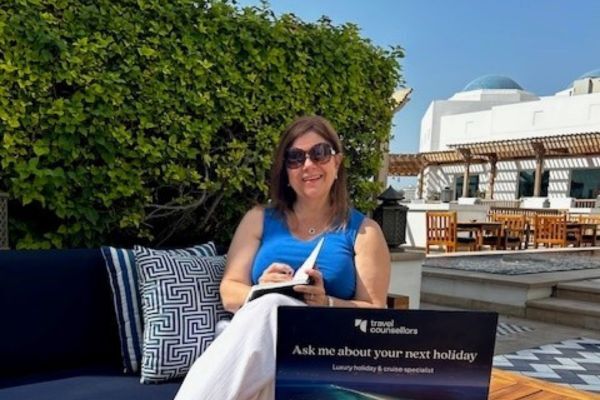The question every new luxury advisor should ask their client
Based on two decades of industry experience, a luxury travel advisor shares her top tips for new agents looking to build a solid client base.
With 25 years working in the sector, Travel Counsellor Katharine Totoni says she believes there is one question every agent should ask their clients – and it’s probably not what you think.
Totoni says communication is key to establishing a strong relationship with clients and securing that booking, especially if you want a repeat customer. She always starts with gathering background information on a client’s past travel experiences, which can quickly establish preferences and speed up the process.
“One of the best questions you can ask is, ‘What’s the worst holiday you’ve ever had?’!” she says. “It gives you a great understanding of what the client doesn’t want and moves you towards what they do want.”
She joined British Airways at just 19 in sales and marketing and now specialises in curating luxury, tailormade holidays for a wide range of clients, having become a Travel Counsellor in 2020.
Over the past three decades, she has seen the industry evolve and her experience has left her with invaluable knowledge of this competitive field, as well as an empathy for the hurdles that many of its newest players face.
Determined to make the industry more accessible to others, she shares her top insights for building a successful career as a luxury travel advisor.
Mind your language
Totoni discourages using terms like ‘budget’, which can make clients feel uncomfortable, and instead opt for more open-ended questions.
“I ask, ‘What are you comfortable spending on your trip?’. It’s crucial to understand what they want to spend from the get-go. You can be going around in circles and wasting time with the client if you don’t have the open conversation in the beginning.”
It’s also important to be tactful when informing the client if it seems like they won’t be able to afford their dream trip; to prevent an awkward silence or losing the sale, Totoni suggests having other ideas on standby.
“There’s a lot of skill in telling a client that they can’t have exactly what they want, but remember, it’s an opportunity to offer an alternative,” she explains. It’s also poor form to present itineraries that are out of their budget anyway, something which at best, wastes time, and at worst, leaves the client feeling unheard.
Last-minute bookings
With last-minute, long-haul bookings on the rise, it’s crucial that new travel advisors learn how to work under pressure.
However, rather than immediately launch into action to fulfil that last-minute request, Totoni suggests speaking candidly to the client about their reason for the spontaneous trip.
“Firstly, assess your client’s motivations to understand what stopped them from booking the holiday six months ago,” she says. If there’s a possibility it can be pushed back to a later date, Totoni will advise selecting an easier option – such as a Europe trip – for the time being. “I’m on a mission to educate my clients and online followers about the benefits of booking well in advance; you are going to have a much better chance of securing the best flights, the best hotels, and the best destinations.”
Totoni is also eager to dispel the myth that booking a holiday at the eleventh hour will result in a good deal. Even if the hotel rates are reduced, last-minute flights are generally priced to target business travellers, who tend to be willing to pay more for airfare.
“It’s the flights that push up the holiday of last-minute bookings,” Totoni explains. “A lot of clients don’t realise how much the price of flights have gone up either.”
Flight plan
With years of travelling under her belt, Totoni knows all too well the importance of understanding flight routings.
She encourages advisors to thoroughly research flight options, from the airline to departure times, to ensure holidays get off to the best possible start.
“The right flight combination is key,” she says. “I like to send my clients through the most direct routes with great connections – even if that means spending a little more.”
Totoni also reminds advisors to invest in the airport experience, which can often set the tone for the rest of the trip.
Anything to make the transit less stressful is appreciated, so consider adding perks such as lounge and fast track passes to the booking. “It’s a special touch and clients love that kind of thing,” Totoni says.
Foster connections
Totoni can’t underestimate the value of having a good relationship with suppliers, which can be a lifesaver for dealing with last-minute requests or resolving issues.
“Actively network with the business development team and account managers of the suppliers,” she says, before suggesting advisors keep a database of industry contacts. “Carry around an old-fashioned ’black book’ with you. You never know when you’ll need it.”
The travel industry can be a minefield for even the most seasoned of advisors, so it’s important to reach out and ask for help if you’re feeling overwhelmed.
“Don’t be afraid to pick up the phone to call someone who is more experienced than you, whether they’re in your organisation or not,” Totoni says. “That’s how you learn. Even if you’re a homeworker, you’re not on your own.”
The power of DMCs
For travel advisors who can work directly with Destination Management Companies (DMCs), they can be an invaluable resource, especially for those new to the industry. Their on-the-ground expertise in the area and the advisor’s knowledge of the client often makes for the perfect combination to create a seamless travel experience – especially if it is a last minute booking.
“DMCs can put together itineraries so quickly,” Totoni says. “As long as you’ve done your bit and gotten a detailed brief from the client, you can just hand it over to the DMC and they can turn it around in as little as 24 hours.”
Booking process
The format of your booking process is another key factor to consider when starting out as a travel agent, as getting this step right can be the difference between a sale or not.
“Keep the booking process simple so they can make a quick decision,” Totoni says. It’s also important to be as detailed and clear as possible in the quote to avoid an endless thread of emails. “Give them everything that they have asked for and maybe more, such as a thoughtful surprise,” she suggests.
Customise it
Luxury travellers often come to advisors for a bespoke experience, which is why it’s crucial to be creative in building the trip.
“Make it something they can’t buy somewhere else,” Totoni says. “Add in extra excursions or amenities you think they’d enjoy.” It’s also an opportunity to prove you can anticipate clients’ preferences, which is one of the main benefits of booking through an agent rather than directly.
“I’ll find out what they like beforehand in the consultation. If they’re not the type of people that would appreciate a bottle of champagne, I’ll do something else; for example, I once organised a private cinema experience for a couple. They watched James Bond on a beach in the Maldives all to themselves and they’re still talking about it to this day! Clients will keep coming back to you if you make them feel special.”















